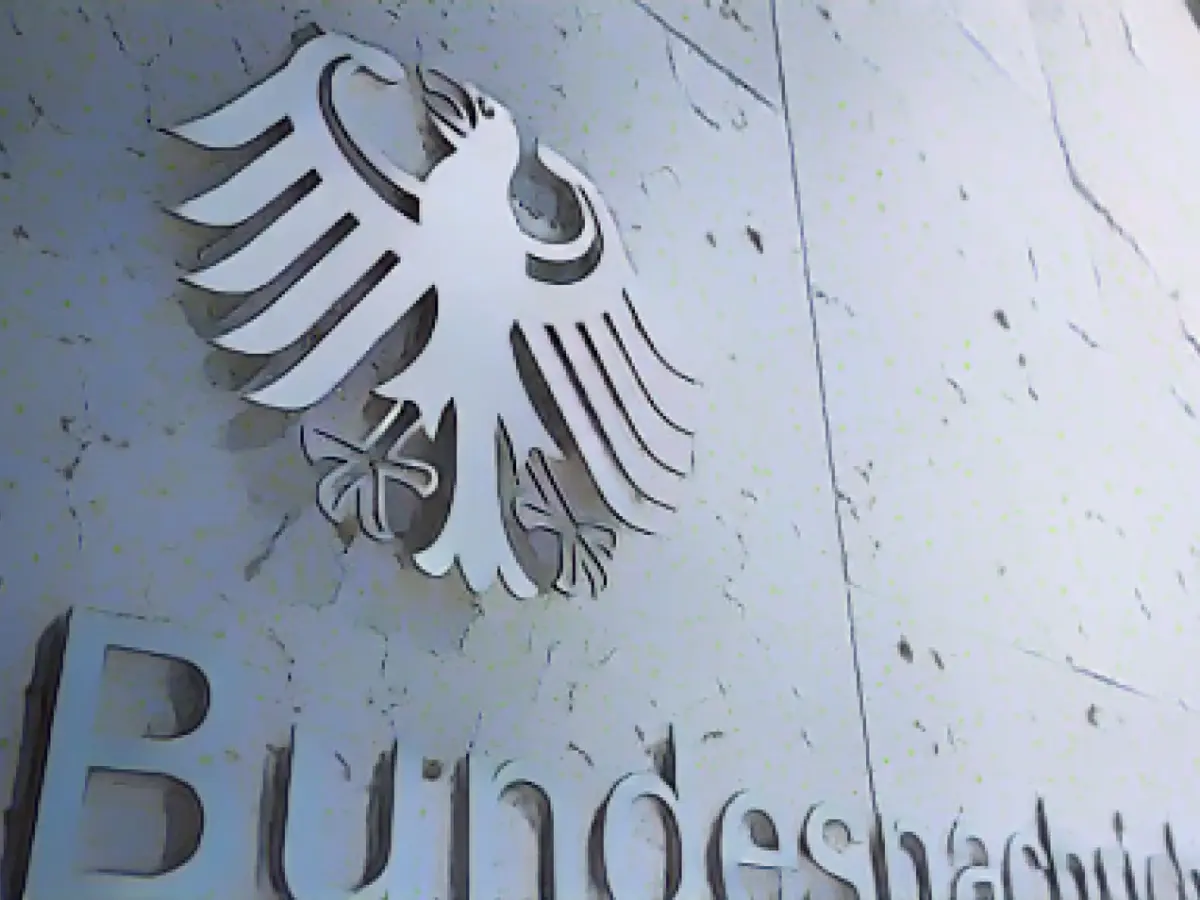In the heart of Berlin's courts, a tense atmosphere filled the air as the trial of a BND employee began. The strictest security precautions were in place due to allegations of treason and state secrets, resulting in a cell-phone-free environment even extending to personal pens.
An employee of the Federal Intelligence Service was the center of attention, standing accused of spying on Germany during the Russian invasion of Ukraine. The 53-year-old had been sworn to secrecy since 2007, and by 2022, he found himself facing treason charges for allegedly providing Russian secret service FSB with classified information in exchange for "agent's pay."
Taking a seat in a glass box separated by their lawyers, the two defendants kept their distance, with no visible signs of contact. However, things were rather different behind bars, where confinement led to a series of forbidden exchanges—letters, that is. The presiding judge, Detlev Schmidt, deemed their correspondence as risky due to the likelihood of fleeing or concealing evidence.
While the alleged traitor kept to himself, his accomplice was reportedly more chatty. Defense attorney Johannes Eisenberg described the accused's statements as highly volatile and dubbed the on-trial businessman as an unreliable source of information. Eisenberg emphasized that there were no solid facts backing up the claim of betrayal that led to the indictment.
It wasn't just words between the accused and their correspondents, though. The indictment alleges that the BND employee printed out and photographed sensitive documents at his workstation to provide to the businessman, who then handed them over to the FSB in Moscow. This alleged behavior was in exchange for the prospect of participating in an ore mining project.
The intrigue didn't end there, with a Russian businessman playing a critical role in the case. He was said to have facilitated the contact, even traveling to Moscow on three separate occasions to transmit the stolen documents to the FSB. This individual was also the subject of separate investigations due to his involvement.
Secrets lurk in the shadows, and this trial has cast a spotlight on a matter that, according to the public prosecutor's office, requires "special secrecy." The defense protested this decision, arguing that the public had the right to know the details of the trial to make an informed assessment. In an unexpected twist, negotiations occurred behind closed doors, much to the dismay of those hoping for more transparency.
As the two sides prepared to continue their case, the trial took a brief pause. With 51 trial days scheduled to July 17, 2024, court spokeswoman Lisa Jani warned that his trial could extend beyond the summer—a stark reminder that high-stakes espionage trials are anything but a swift process.
Related Topics:
- The accused BND employee was remanded in Berlin-Moabit due to his alleged involvement in the espionage case.
- The Federal Intelligence Service (BND) employee and his alleged accomplice were suspected of betraying sensitive information to the Russian secret service FSB in exchange for "agent's pay."
- The Russian secret service FSB accumulated classified documents through the actions of the BND employee and his accomplice, facilitated by a middleman.
- The trial was marked by strict security measures, causing parties involved to communicate through written notes during prisons stays due to the)+(high risk of absenteeism or concealing evidence).
- Defense attorney Johannes Eisenberg pointed out that the alleged traitor's statements were unstable and characterized the businessman co-defendant as untrustworthy.
- Employees at the BND and the German Army Intelligence (MAD) regularly exchange classified information, but a breach of trust can lead to severe consequences for national security.
- The increase in technology has heightened the need for tighter security, with digital espionage and quote-unquote "hacktivism" threatening to expose sensitive information.
- The alleged Russian businessman played a crucial role in facilitating the accusations against the German spies without directly participating as a defendant.
Source:
Enrichment Data: The case mentioned in the article is an instance of a textbook spy story, involving state secrets, foreign espionage, and a clandestine exchange of information between secret agents. Though the article doesn't give specific details about the context, the facts suggest that the trial is not an isolated occurrence, but a recurring issue for intelligence agencies worldwide.
In historical cases like the Nazi art thief and Thomas A. Drake cases, a central theme is the use of spies to infiltrate enemy organizations, steal, and manipulate information to gain an advantage. The contemporary context broadens the scope to cyberattacks and digital espionage, as modern technology provides new tools for unauthorized access to classified information.
Understanding the context and historical differences helps shed light on current events, providing a more comprehensive perspective on the ongoing trial of the BND employee and their alleged involvement in espionage activities.








